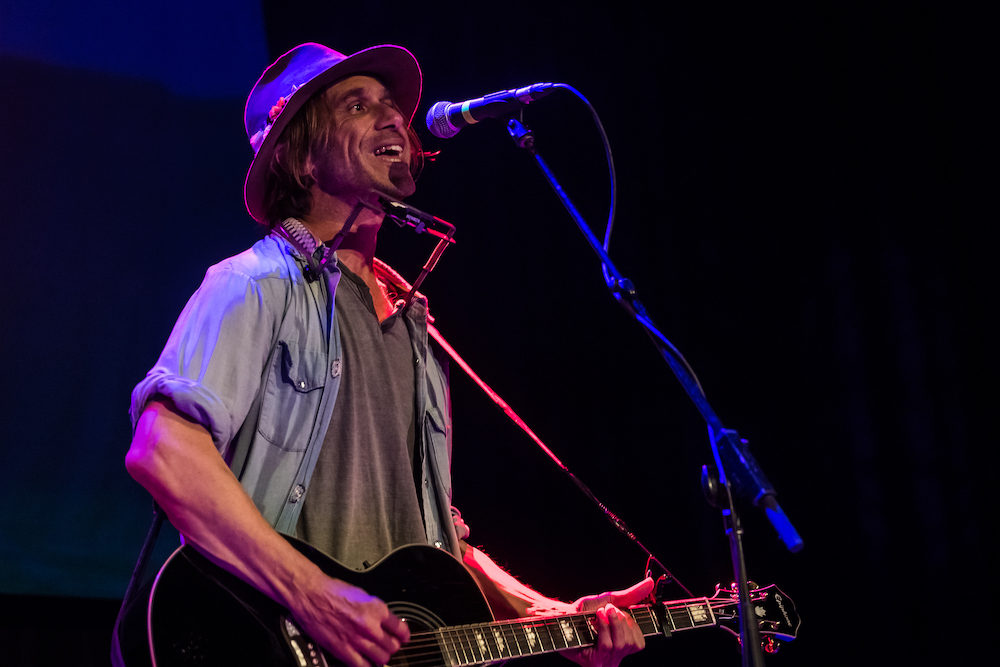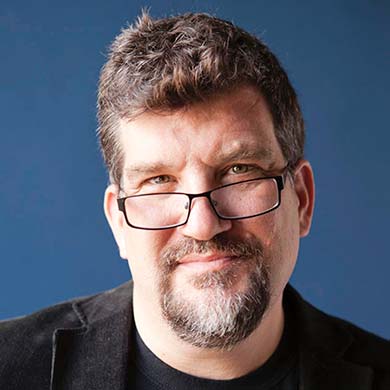
Todd Snider performs at The Vogue on April 18, 2019, in Indianapolis, Indiana (Photo by )
“Why do I do what I do?” they asked.
So, I went to the source of all wisdom to contemplate my place in the world: folk singer Todd Snider, the barefoot poet laureate of me.
A man once said that the pinnacle of success,
Is when you’ve finally lost interest,
In money, compliments, and publicity.
A noble enough idea, I suppose,
How on earth he does this, heaven only knows.
I know I need a lot more of all three of those,
Before I ever have the nerve to turn up my nose
At any money, compliments, and publicity.
Which — alas — is not the right answer. Were I to bank on journalism for money, or compliments, or publicity, I’d still be broke as the Ten Commandments, as Todd puts it in the song. And neurotic, in the wrong business, careening down the path toward more harm than good.
For once, Todd Snider can’t speak for me. So, who can?
I got my first real journalism job 35 years ago at The Birmingham News in Alabama, which has since merged with sister newspapers under the website AL.com.
As a great, and sadly late, Pulitzer winner named Ron Casey put it, “If you want fine wine, go to France. If you want to write editorials, come to Alabama.”
So, I never left. I told myself it was possible to make a difference there, to tell stories and point out corruptions and policies that kept the powerful in full power and the powerless with a lot less.
That is as good as money, more solid than compliments, and more fulfilling than publicity.
The more I contemplate this question — Why do I do what I do? — the more I trace the roots to the student newspaper at the University of Alabama, The Crimson White.
It was there, with an astonishing staff under the direction of editor Jan Crawford, that I learned to question, to hold authority to account, to speak up for those who had no platform, and, as editorial page editor, to say the things in print I’d never found the words to say with my mouth.
It also made me pay attention to the people who were attracted to journalism: idealists who hid their own hope beneath a veil of feigned cynicism.
Journalism has changed a lot since then: Local news is under threat, business models are broken, stories that once splashed across communities now make but a ripple, Twitter is an occupational mental health hazard, and recent attacks on the press — and fact itself — drive good people out of the business, and readers away from it.
Like many journalists, I wallowed in those changes as they came. But the more I became surrounded by innovative, mostly young, people seeking to change the world, the more I was reminded of my college paper, and why I got into this work.
Those people — colleagues — changed me, saved me, opened my mind to new ways to deliver news: by column, or long form, or animated videos, by video columns, or podcasts, or cartoons, or whatever comes next. I love the written word, but the message is the message. Not the medium.
We tried to keep one foot in the journalistic past, holding on to values and ethics the business demands, and another in the possibilities. It was fun again.
The more I thought of that, the more it answered the question: Why do I do what I do?
For readers. For sustenance. For health insurance. But mostly I do it — always have, I realize now — because of the kind of people I get to work with.
Despite political attacks on the press, true journalists are the best people I’ve known. It’s a broad statement, sure, but in my experience the jackasses are exceptions rather than rules.
They are the reason I do what I do.
Because journalists are my idols. They always have been. Like Woodward and Bernstein, and Barlett and Steele, like Ida B. Wells and Steve Lopez and Cynthia Tucker and Sally Jenkins. Like people you’ve never heard of. The people who really care about this business are the most conscientious and devoted people I know.
They stand for truth, integrity, and for those who can’t stand for themselves. They stand against tyranny, Twitter trolls, and weaponized, politically funded critics. Some of them face the threat of jail or death.
The real ones question themselves as much as others, examine their mistakes, and try to correct them. The others, well, they’re not journalists at all.
When I focus on a world too small, journalists show me it is bigger. When I think the work can’t matter, they show me it does. When I get lost from looking inward, they show me the value of looking out.
Journalists make me better. Not just as a writer, or a commentator, but a human.
Which is why I do what I do.


